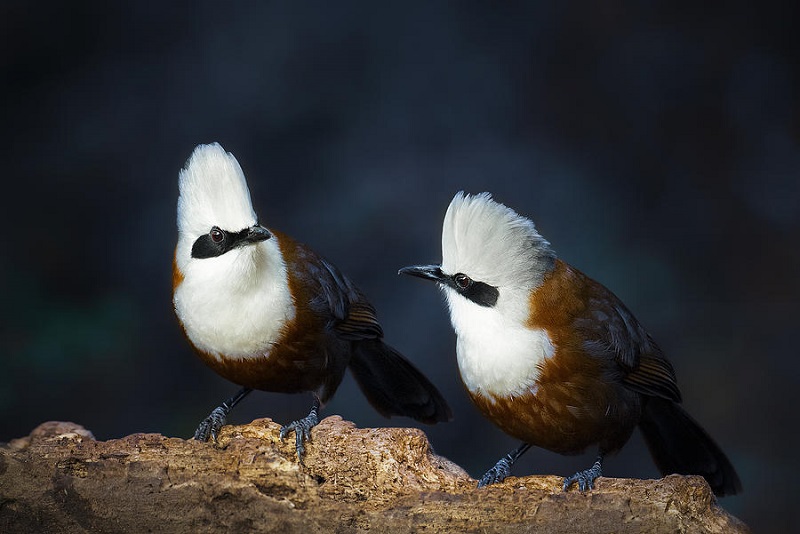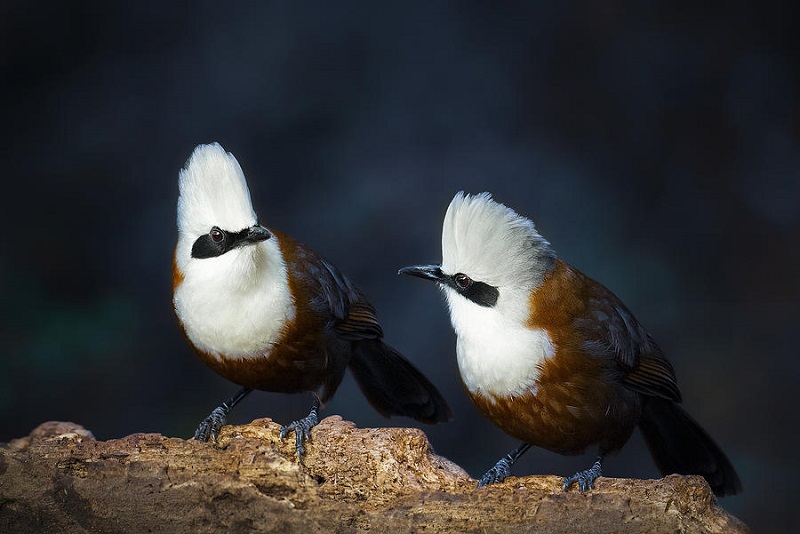Introduction
The Himalayan region is renowned for its stunning landscapes and incredible biodiversity. Nestled among the towering peaks and dense forests, the White-Throated Laughingthrush (Garrulax albogularis) is a captivating avian species that adds both beauty and charm to this spectacular region. In this blog post, we will delve into the world of the White-Throated Laughingthrush, exploring its appearance, behavior, habitat, and the significance of its melodious calls.
1. A Feast of Colors

The White-Throated Laughingthrush is a sight to behold. Its plumage is a striking combination of deep chestnut-brown, white, and gray feathers. The most remarkable feature, as the name suggests, is the white throat and neck, which contrasts vividly with its other colors. This unique combination makes it a stunning and easily identifiable bird.
2. The Social Songster

One of the most endearing aspects of the White-Throated Laughingthrush is its social behavior. These birds are known for their gregarious nature and are often seen in small to large groups. Their melodious calls, often described as laughter, are a way of maintaining contact within the group. These calls echo through the dense forests, adding an auditory dimension to the already enchanting environment.
3. Habitat in the Himalayas

The White-Throated Laughingthrush calls the Himalayan region its home. They thrive in dense undergrowth, bamboo thickets, and rhododendron forests, making these habitats their preferred locales. The altitude range where they are typically found can vary from lower subtropical elevations to much higher alpine forests.
4. Biodiversity Indicator

The presence of the White-Throated Laughingthrush often indicates a healthy ecosystem. As they feed on a variety of insects, small invertebrates, and berries, they play a role in controlling pest populations and dispersing seeds, thereby contributing to the overall health of the forest.
5. Conservation Concerns

While these birds are relatively common in some parts of their range, the White-Throated Laughingthrush faces habitat loss and fragmentation due to deforestation and development. Conservation efforts are essential to safeguard their future and ensure that their unique melodies continue to resonate in the Himalayan wilderness.
Fecal Content
In conclusion, the White-Throated Laughingthrush is a visual and auditory delight of the Himalayas. Its unique plumage, sociable nature, and melodious calls make it an essential part of the region’s rich biodiversity. However, their habitat faces increasing threats, underscoring the importance of conservation initiatives. By protecting the forests and ecosystems that are home to these birds, we not only preserve the White-Throated Laughingthrush but also ensure the health and vibrancy of the Himalayan wilderness for generations to come.


